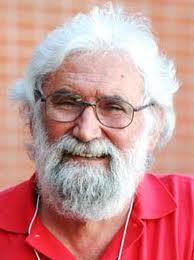 2013-09-06
2013-09-06
Del 19 al 23 de agosto se celebró en la ciudad de Copenhage el XIX Congreso internacional de la Psicología Analítica de C.G. Jung, en el cual participé. Había cerca de 700 junguianos, venidos de todas las partes del mundo, hasta de Siberia, China y Corea. En su gran mayoría analistas experimentados, muchos de ellos autores de libros relevantes en este área. Predominó una tónica: la necesidad de la psicología en general y de la analítica junguiana en particular de abrirse a lo comunitario, a lo social y a lo ecológico.
Esta preocupación sale al encuentro del propio pensamiento de C.G. Jung, Para él la psicología no tenía fronteras entre cosmos y vida, entre biología y espíritu, entre cuerpo y mente, entre consciente e inconsciente, entre individual y colectivo. La psicología tenía que ver con la vida en su totalidad, en su dimensión racional e irracional, simbólica y virtual, individual y social, terrenal y cósmica y en sus aspectos sombríos y luminosos. Por eso le interesaba todo: los fenómenos esotéricos, la alquimia, la parapsicología, el espiritismo, los platillos volantes, la filosofía, la teología, la mística occidental y oriental, los pueblos originarios y las teorías científicas más avanzadas. Sabía articular estos saberes descubriendo conexiones ocultas que revelaban dimensiones sorprendentes de la realidad. De todo sabía sacar lecciones, hipótesis, y abrir posibles ventanas sobre la realidad. Por eso, no cabía en ninguna disciplina, motivo por el cual muchos lo ridicularizaban.
Esta visión holística y sistémica necesitamos hacerla hoy hegemónica en nuestra lectura de la realidad. En caso contrario, quedamos rehenes de visiones fragmentadas que pierden el horizonte del todo. En esta diligencia Jung es un interlocutor privilegiado, particularmente en el rescate de la razón sensible.
Suyo fue el mérito de haber valorizado e intentado descifrar el mensaje escondido en los mitos. Estos constituyen el lenguaje del inconsciente colectivo. Este posee relativa autonomía. Nos posee a nosotros más de lo que nosotros lo poseemos a él. Cada uno es más pensado de lo que propiamente piensa. El órgano que capta el significado de los mitos, de los símbolos y de los grandes sueños es la razón sensible o la razón cordial. Ésta ha sido colocada bajo sospecha en la modernidad pues podría oscurecer la objetividad del pensamiento. Jung siempre fue crítico del uso exacerbado de la razón instrumental-analítica pues cerraba muchas ventanas del alma.
Es conocido el diálogo que en 1924-1925 mantuvo Jung con un indígena de la tribu Pueblo en Nuevo México. Este indígena pensaba que los blancos estaban locos. Jung le preguntó por qué los blancos estarían locos. A lo que el indígena respondió: “Ellos dicen que piensan con la cabeza”. “Claro que piensan con la cabeza”, replico Jung, “¿cómo piensan ustedes?”, preguntó. Y el indígena, sorprendido, respondió: “Nosotros pensamos aquí” y señaló el corazón (Memórias, Sonhos, Reflexões, p. 233).
Este hecho transformó el pensamiento de Jung. Entendió que los europeos habían conquistado el mundo con la cabeza pero habían perdido la capacidad de pensar y sentir con el corazón y de vivir a través del alma.
Lógicamente no se trata de abdicar de la razón –lo que sería una pérdida para todos– sino de rechazar el estrechamiento de su capacidad de comprender. Es preciso considerar lo sensible y lo cordial como elementos centrales en el acto de conocimiento. Permiten captar valores y sentidos presentes en la profundidad del sentido común. La mente es siempre incorporada, por lo tanto, impregnada de sensibilidad y no sólo cerebrizada.
En sus Memorias dice: “hay tantas cosas que me llenan: las plantas, los animales, las nubes, el día, la noche y el eterno presente en los seres humanos. Cuanto más incierto me siento sobre mí mismo, más crece en mí el sentimiento de mi parentesco con todo” ( 361).
El drama del ser humano actual es haber perdido la capacidad de vivir un sentimiento de pertenencia, cosa que las religiones han garantizado siempre. Lo que se opone a la religión no es el ateísmo o la negación de la divinidad. Lo que se opone es la incapacidad de ligarse y religarse con todas las cosas. Hoy las personas están desenraizadas, desconectadas de la Tierra y del ánima, que es la expresión de la sensibilidad y de la espiritualidad.
Para Jung el gran problema actual es de naturaleza psicológica. No de la psicología entendida como disciplina o solamente como dimensión de la psique. Sino de la psicología en sentido integrador, como la totalidad de la vida y del universo en cuanto percibidos y articulados con el ser humano. Y en este sentido escribe: “Es mi más profunda convicción que, a partir de ahora, hasta un futuro indeterminado, el verdadero problema es de orden psicológico. El alma es el padre y la madre de todas las dificultades no resueltas que lanzamos en dirección al cielo” (Cartas III, 243).
Si no rescatamos hoy la razón sensible, que es una dimensión esencial del alma, difícilmente nos movilizaremos para respetar la alteridad de los seres, amar a la Madre Tierra con todos sus ecosistemas y para vivir la compasión con los que sufren en la naturaleza y en la humanidad.
Leonardo Boff
Este mensaje le llega porque Usted está en la lista de REFUGIO DEL RIO GRANDE. Si no quiere seguir recibiéndolo, favor de enviarnos un mensaje pidiendo que borremos su subscripción. Gracias.
The need to rescue socio-ecological sensibility
Leonardo Boff
Theologian-Philosopher
Earthcharter Commission
From August 19 to 23, the XIX International Congress of C. G. Jung's Analytical Psychology, in which I participated, was celebrated in Copenhagen, Denmark. There were nearly 700 Jungians, from all parts of the world, even Siberia, China and Korea. The great majority were experienced analysts, many of them authors of books relevant to this field. The predominate tone was: the need for psychology in general, and Jungian analytical psychology in particular, to open up to social and ecological communitarianism.
This concern arises from C. G. Jung's thinking itself. To him, psychology did not draw boundaries between the cosmos and life, biology and spirit, body and mind, conscious and unconscious, or between the individual and the collective. Psychology dealt with life in its totality, in its rational and irrational dimensions, symbolic and virtual, individual and social, terrestrial and cosmic and in its somber and luminous aspects. That is why he was interested in everything: the esoteric phenomena, alchemy, parapsychology, spiritualism, flying saucers, philosophy, theology, Western and Oriental mysticisms, the original peoples, and the more advanced scientific theories. He knew how to incorporate all these fields of knowledge, discovering hidden connections that revealed surprising dimensions of reality. He knew how to draw lessons and hypotheses from everything, and to open possible windows on reality. Therefore, he did not fit into any discipline, which is why many ridiculed him.
We need to incorporate this holistic and systemic vision into our understanding of reality. Otherwise, we will continue to be hostage to fragmentary visions, missing the broader horizon. In this effort, Jung is a privileged interlocutor, particularly in rescuing sensible reason.
His was the merit of having valued and attempted to decipher the messages hidden in the myths. They are the language of the collective unconscious, which has relative autonomy. It possesses us more than we possess it. Each one has more thoughts than what he himself thinks. The organ that captures the meaning of myths, of symbols and of the great dreams, is the sensible or cordial reason. It is viewed with suspicion in modern times, because it could obscure the objectivity of thought. Jung was always critical of the excessive use of instrumental-analytical reason, because it closed off many windows to the soul.
The 1924-25 dialogue between Jung and an Indigenous of the New Mexico Pueblo nation is well known. This Pueblo man thought that Whites were crazy. Jung asked him why Whites were crazy. The Pueblo replied: “They say they think with the head”. “Of course they think with the head”, Jung replied, “how do you think?” Jung asked. The surprised Pueblo native answered: “We think here,” and pointed to the heart. (Memórias, Sonhos, Reflexões, p. 233).
This dialogue transformed Jung's thinking. He realized that Europeans had conquered the world with the head, but had lost the capacity to think and feel with the heart, and to live through the soul.
Logically, it is not about abdicating reason –which could be a loss for us all– but of rejecting its restrictive capacity for understanding. It is important to consider the sensible and the cordial as central elements of knowledge. They allow us to capture the values and meanings found in the profundity of common sense. It always incorporates the mind, and is thus impregnated with sensibility and not just intellect.
In his Memorias he says: “there are so many things that fill me: plants, animals, clouds, the day, the night, and the eternal, present in human beings. The more I feel uncertain about myself, the more the feeling of my kinship with all grows within me” ( 361).
The drama of the present day human being is of having lost the capacity to experience a feeling of belonging, something that religions have always guaranteed. The opposite of religion is not atheism or the denial of the divine. The opposite of religion is the inability to bond and re-bond with all things. People now are uprooted, disconnected from the Earth and from the soul, which is the expression of sensibility and spirituality.
For Jung the great problem now is of a psychological nature: not of psychology understood as a discipline or only as a dimension of the psyche, but of psychology in the integrating sense, as the totality of life and the universe as perceived by and represented in the human being. In this sense, Jung writes: “It is my most profound conviction that, starting now and for he indefinite future, the true problem will be of a psychological nature. The soul is the father and mother of all unresolved difficulties that we launch in the direction of heaven” (Cartas III, 243).
If we now fail to rescue sensible reason, which is an essential dimension of the soul, it will be difficult to mobilize respect for the otherness of beings, the love of Mother Earth with all her ecosystems, and to experience compassion with those who suffer in nature and in humanity.
Leonardo Boff
09-06-2013

